|
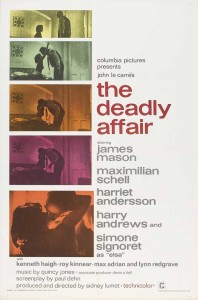
Synopsis:
When British agent Charles Dobbs (James Mason) and Inspector Mendel (Harry Andrews) investigate the murder of an ex-Communist government official, they suspect that the victim’s wife (Simone Signoret) may know more than she’s revealing. Meanwhile, Dobbs has troubles of his own at home, when he discovers that his nymphomaniac wife (Harriet Andersson) has had an affair with a colleague (Maximilian Schell).
|
|
Genres, Themes, Actors, and Directors:
- Cold War
- Detectives and Private Eyes
- Harry Andrews Films
- James Mason Films
- Lynn Redgrave Films
- Marital Problems
- Maximilian Schell Films
- Murder Mystery
- Sidney Lumet Films
- Simone Signoret Films
- Spies
Response to Peary’s Review:
The performances by Mason, Andrews, and Signoret are wonderful in this otherwise dreary, character-driven spy flick, based on the novel by John le Carre. Peary lauds the film as “gripping” and “expertly directed”, but I find it unduly depressing — primarily due to the distracting subplot about Mason’s marital difficulties.
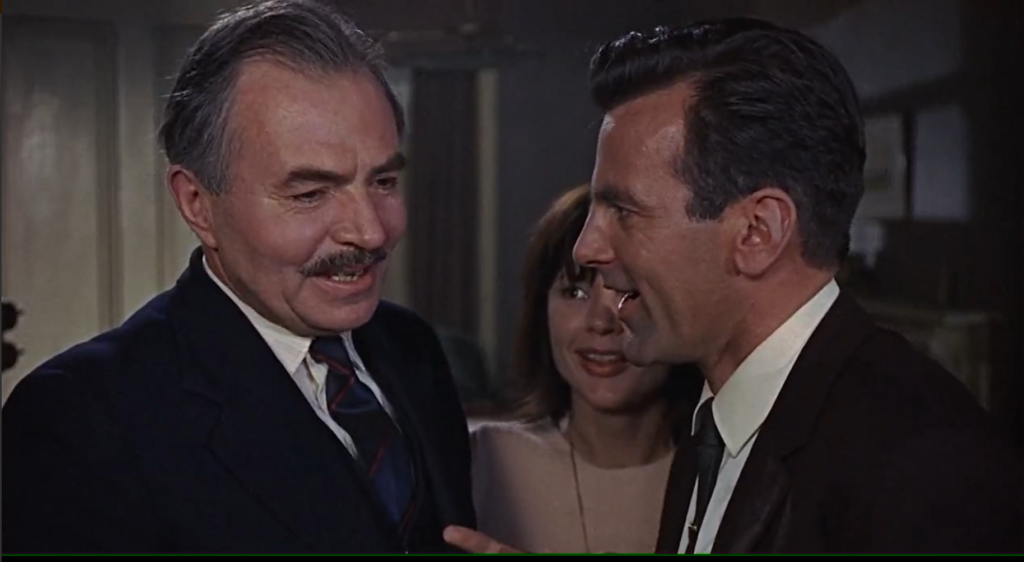
On the other hand, Mason’s interactions with Andersson posit him as more complex and human, thus allowing him to display a wider range of emotions — indeed, as Peary notes, the film is notable for presenting a realistic contrast to the suave, romantic existence of James Bond; being a spy doesn’t come across as particularly appealing, glamorous, or romantically satisfying.
Redeeming Qualities:
- James Mason as Dobbs (Peary nominates Mason’s performance as one of the best of the year in his Alternate Oscars)
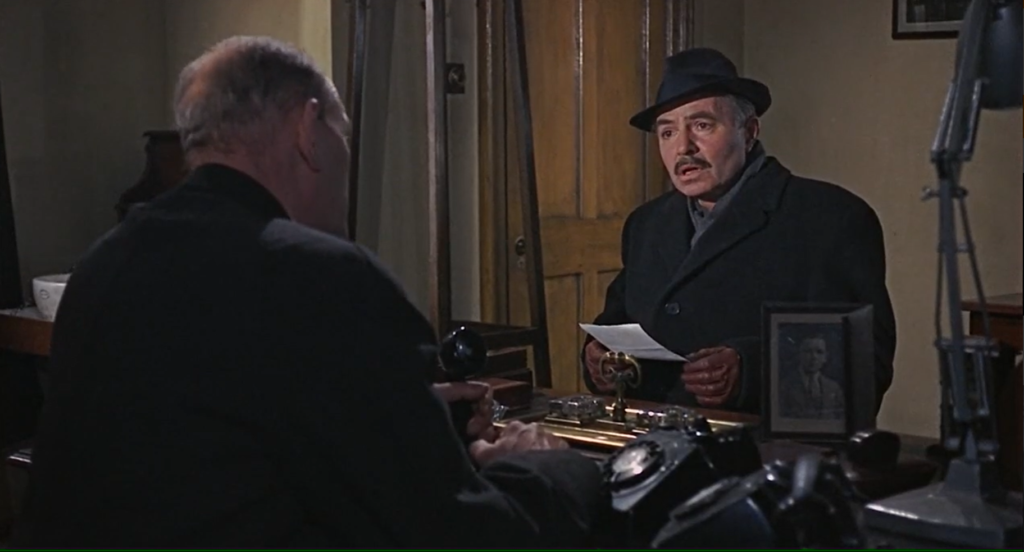
- Harry Andrews as Inspector Mendel
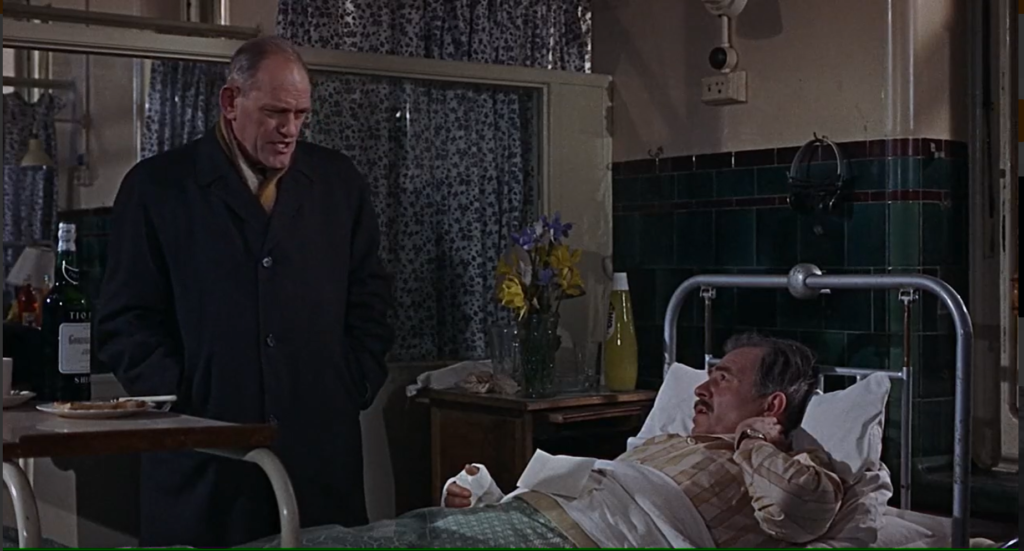
- Simone Signoret as the murdered official’s wife
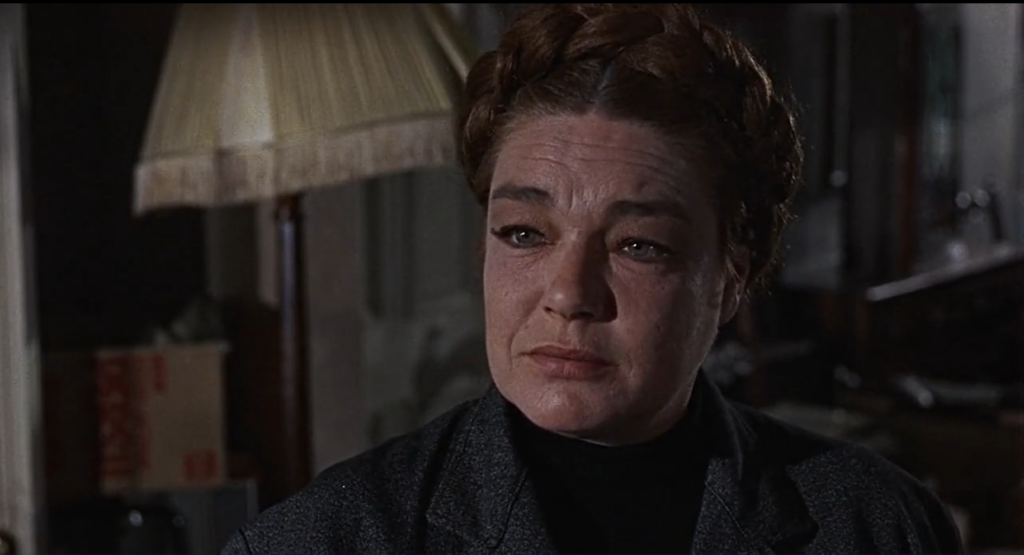
- Effective use of gloomy London locales
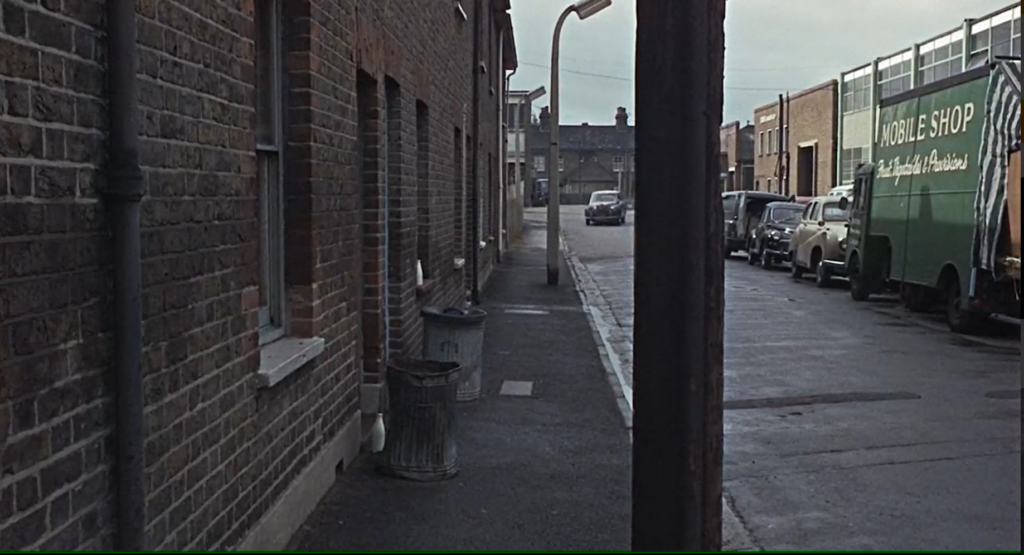
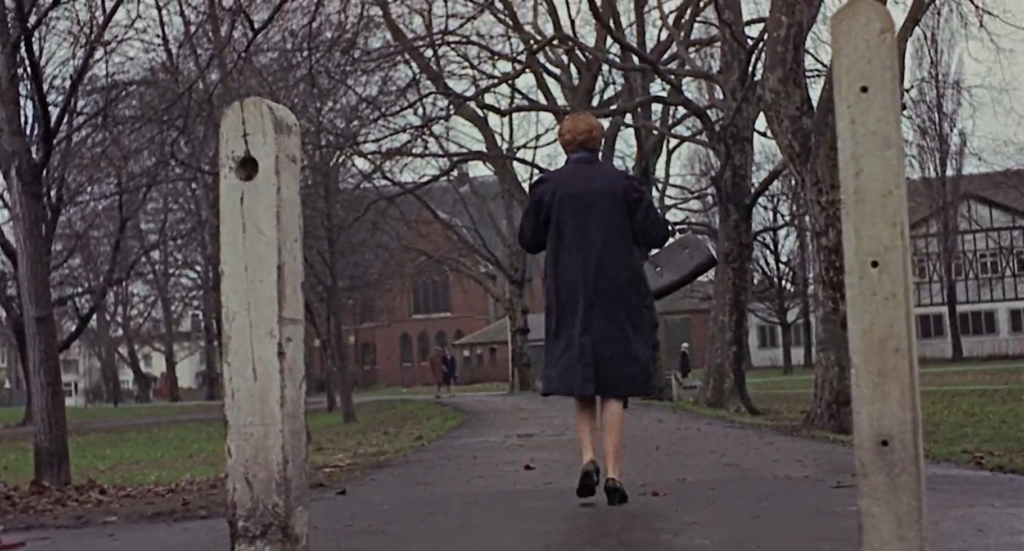
Must See?
Yes, for the fine performances.
Categories
- Noteworthy Performance(s)
Links:
|
3 thoughts on “Deadly Affair, The (1966)”
First viewing. A must.
I’ll agree with Peary that ‘TDA’ is “gripping” (as opposed to “depressing”). I don’t find it dreary at all, but a nifty, solid thriller-lite – since, as noted, the piece is more character-driven and there’s more tension than action.
Here’s the thing: I was rather tired last night and not as keen as usual about starting a film late. But this is a title I’d had difficulty tracking down, so when I saw it’s available for watching through IMDb, I thought I’d at least get it started and just watch some of it.
Instead, I was glued.
Lumet has made a disappointing number of dull films but he’s still up there with The Big Boys, and when he’s on his game, he’s on! With Our Man Mason dependably navigating the acting waters as always, Lumet supplemented by assembling an intriguing and sturdy supporting cast (including surprising additions such as Ingmar Bergman regular Andersson, and Signoret – as well as a delightful appearance by Lynn Redgrave, who had just made ‘Georgy Girl’ with Mason and here is seen in a bit of a similar vein).
The screenplay by Paul Dehn (who had just done ‘The Spy Who Came in from the Cold’, something of a companion piece, as it happens – being the work of the same author and all) wastes no time with extraneous set-up, throws you into the crux of the matter, and is remarkably clear and teasingly detailed throughout. (A particularly nice touch is the way Mason’s character handles his wife’s ‘problem’.) As well, DP Freddie Young has given the film suitably evocative atmosphere, usually in dark settings.
For me, the only (but very minor) downside is the score by Quincy Jones – not that it’s bad; it just seems to call attention to itself rather than serve the film.
All told, very satisfying.
There’s another dimension to the film which helps to get it ‘over the line’, so to speak, and also to understand Peary’s point of view a little better: it’s the autobiographical and thematic elements from John Le Carre’s early life (working for MI5 and then MI6, up until The Spy Who Came in from the Cold) and novels. Dobbs is an early incarnation of Smiley, and then there are characters such as Mendel and an early version of Peter Guillam, and especially Anne with her reckless extramarital tastes, not to mention Switzerland as an intersection point of the triangular affair. Just as Bill Hayden deliberately “joins the queue” of Anne’s lovers as a cover and as a weapon against Smiley, so Dieter Frey (“free”) combines business with business upon his appearance in London and in the lives of our principals. So the “affair” is no sideshow intended only to show Dobbs’s human side; instead it is tightly integrated with the main plot and not least of all with the double-entendre of the title.
⭐️⭐️⭐️⭐️
A fine adaptation and a it has a cast to die for. Love the “flashed” look of the film; it suits the mood and locations well. A splendid film by a master. Mason is peerless, as always.